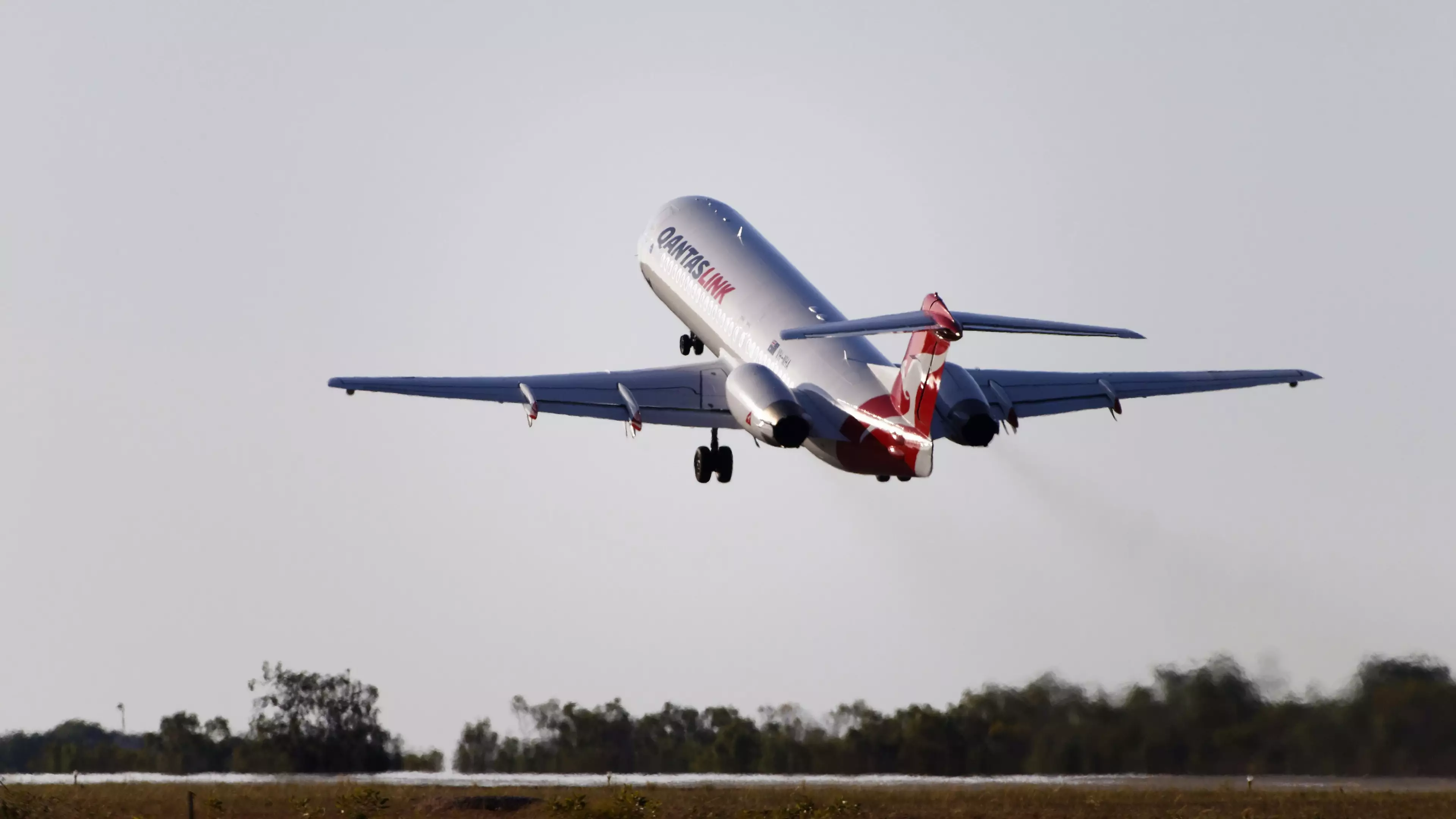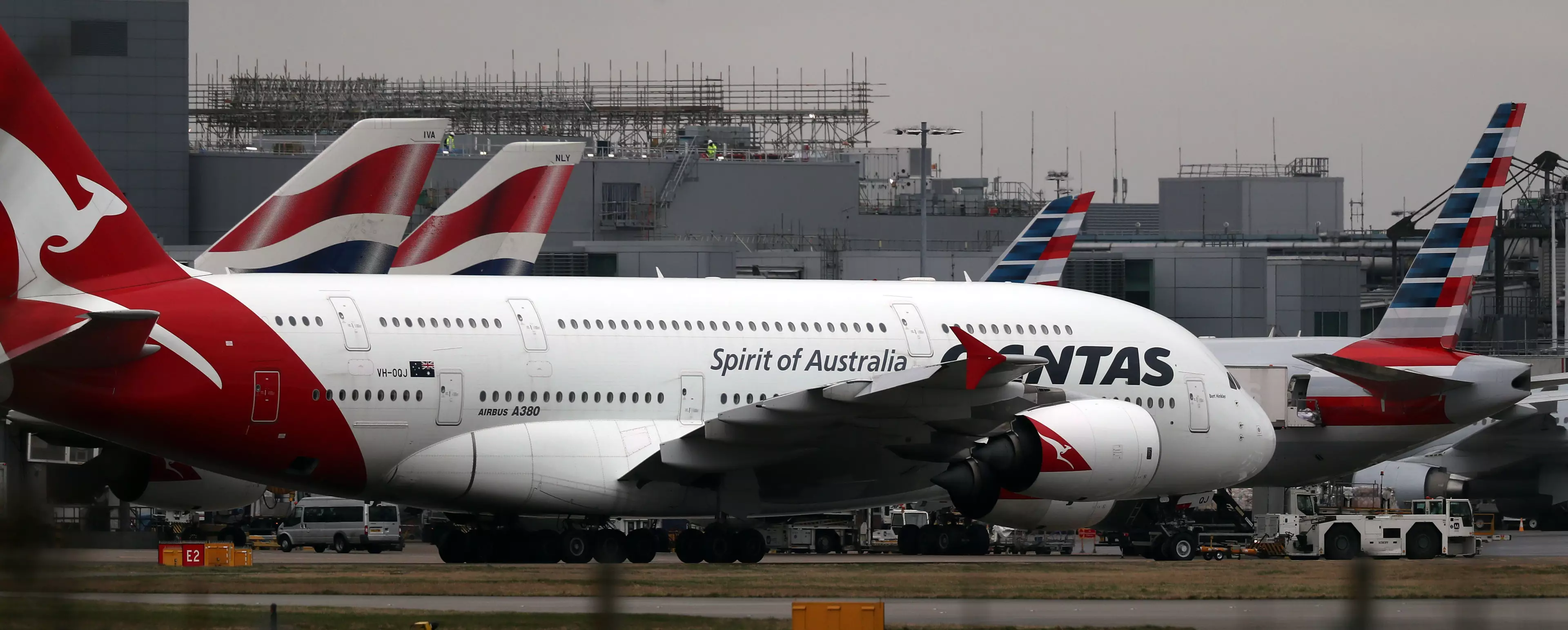
It takes a special kind of person to actually enjoy flying. Most of us find it uncomfortable, tedious and perhaps even a little bit mortally terrifying - which means that, with the announcement that Qantas can now fly directly from London to Perth, Australia in 17 hours, it's perhaps worth having a think about whether or not we should be doing that, not just whether or not we can.
Aside from being trapped in a tin can full of other people's farts and blasting through the jet stream at several hundred miles per hour - resting only on a principle of physics - are there any other effects that flying for that long without a break could have on the human body?
Advert
Well, let's start with the big hitters. Deep vein thrombosis is something that a few of you will have heard of. Basically, if you're cramped up in economy class on a plane for ages - which, unless you are a multi-millionaire, you will be - you are at a greater risk of blood clots.

That sounds pretty scary, but you could just get up and have a walk around - that'll get the circulation going again and you'll be fine.
As it happens, you're supposed to do this on any flight over about 4 hours, so you'll need to be up relatively frequently if you're taking on the 9,000 mile Britain to Oz flight.
Advert
Stuck on the plane for that long, you're also going to get dehydrated.
Humidity on a plane can get as low as 10%. That's really low. In fact, there are times when the deserts of the world are significantly higher than that.
That means if you wear contact lenses they're going to be uncomfortable. It also means that smashing back the beers is going to make you more dehydrated. That selfie at the airport with a pint should actually be a pint of refreshing water - stay hydrated guys.
Also, that lack of humidity means that your mucus glands dry out (gross), which means that can't stop germs as effectively.
Advert
Guess what - if somebody's got a cold on the plane, the longer you're on it the higher your chances of getting it are.
The good news is that the idea that the air circulation systems make aeroplanes a hotbed of disease and infection is a bit of a myth. They take in air from outside as well as re-circulating air from within.
Advert
Yep, it's just not entirely true that they are recycling all of the air, germs, and parasites around the cabin... Oh, but the tray tables, headrests, bathrooms - those are pretty good at it.
If you want to be a more comfortable and more considerate flyer - don't go around eating heaps of sprouts, eggs and baked beans in the run up to your flight. One effect of the high altitude is that gas expands inside you.
That can be both uncomfortable and unpleasant. Just leave it out.
So, yeah, outside of all of the things we've mentioned - along with jet-lag, loud noises that planes make, sore ears, sore teeth, awful food, uncomfortable seats, crying babies, bad films, aggressive perfume sales and the constant fear of impending death - flying is perfectly fine.
Advert
On the other hand, how badly do you want to go to Perth?
Source: The Independent
Featured Image Credit: PA